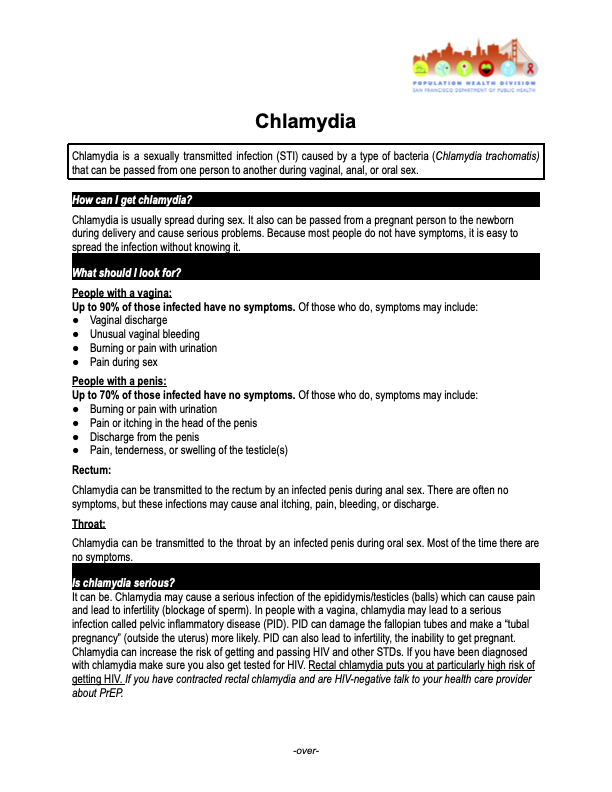For women, untreated chlamydia can lead to severe reproductive health problems, including infertility (i.e. difficulty or inability to get pregnant). Pelvic inflammatory disease (PID) is a common result of untreated chlamydia infection in women. In PID, the bacteria move from the vagina up through the cervix and into the uterus, fallopian tubes and ovaries. Blockage and scarring can damage the tubes, causing women who get pregnant to be more likely to have ectopic (“tubal”) pregnancies. Left untreated, PID can cause infertility and chronic pelvic pain.
Chlamydia can lead to PID in women even when there are no symptoms.
Untreated chlamydia can also cause vaginal discharge, urinary tract infections, and miscarriage. Women who have chlamydia during pregnancy can pass it on to their baby during childbirth, which can cause an eye infection or pneumonia in the newborn.
Men with untreated chlamydia can occasionally develop epididymitis, a painful infection of the testicles. Untreated chlamydia infections can also cause inflammation of the prostate and urethral scarring, sometimes leading to infertility
If you are living with HIV and not taking antiretroviral medications, a chlamydia infection can lead to highly concentrated amounts of HIV virus in your genital tissue causing 8–10 times more HIV to be shed in your semen or vaginal secretions. If you are HIV negative and have chlamydia, your immune cells are especially susceptible to HIV, if your partner is carrying the virus. Rectal chlamydia may increase your chance of getting HIV by 10 to 20 times. However, taking medication to prevent HIV (PrEP) can significantly decrease the risk of getting HIV, even when there is an STI present.

